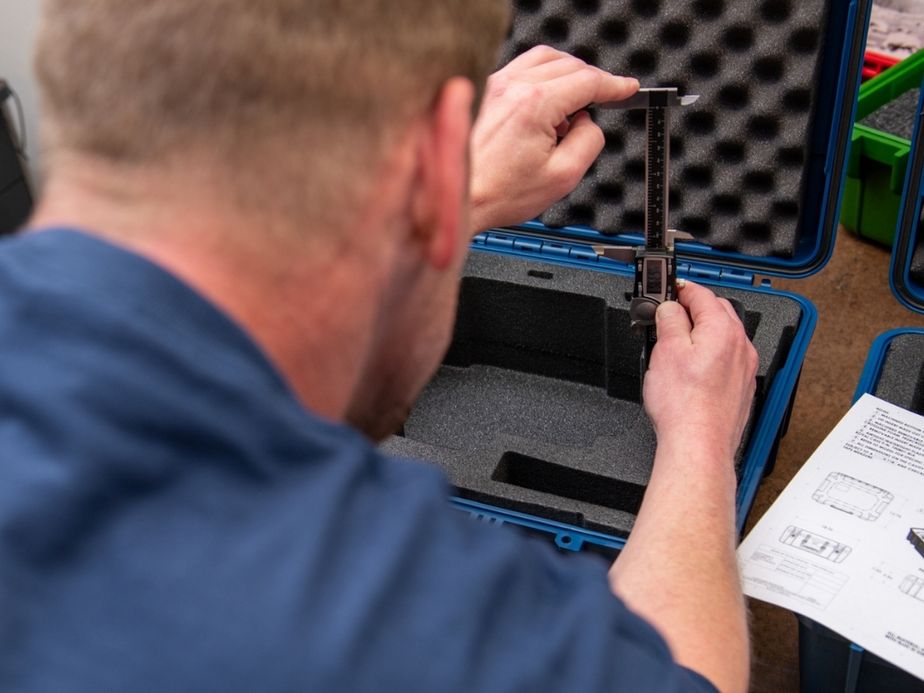Filed Under:
Manufacturing
Published on
April 11, 2025

The design and engineering process in case manufacturing is the foundation of creating effective and high-quality custom cases. At Royal Case Company, we employ a structured approach combining innovation, precision, and detailed testing, ensuring our custom cases precisely match client specifications and expectations.
In this post we highlight a few of the key benefits of utilizing our in-house design and engineering capabilities to create custom cases.
Initial Concept and Consultation – Collaborating with clients to understand their unique needs, intended use, and performance criteria. This ensures we outline all requirement and can suggest the best possible solutions.
Detailed Design Development – Creating comprehensive drawings and CAD/3D models that translate client requirements into precise design specifications. Here you start to see the product take shape.
Material Selection – Choosing appropriate materials based on product weight, environmental factors, protective needs, and durability requirements. This will heavily depend on the intended customer and environmental factors that could effect the product.
Prototype and Sampling – Developing initial prototypes to evaluate design functionality, fit, and overall effectiveness, providing opportunities for client feedback and design refinements. There may be several renditions of the case during this phase to ensure we create the right case.
Testing and Validation – Depending on the need, rigorous testing for durability, usability, and protection standards to ensure the final product meets stringent quality and usage benchmarks.
Final Approval and Production – Receiving client approval on samples and initiating full-scale manufacturing. Only when the client is satisfied with the sample will we move to production.
Sampling is a critical step, offering several benefits:
Accuracy and Assurance – Confirms that the final product aligns precisely with client expectations and specifications.
Risk Mitigation – Early identification and resolution of potential design issues, minimizing costly adjustments during production.
Client Engagement and Satisfaction – Enhances client confidence and involvement, ensuring the product meets exact needs.
Royal Case Company offers free in-house sampling to give you the best view of our work.
Robust design and sampling processes benefit every industry before purchasing, but particularly benefit industries such as the below due to extensive feature and product requirements:
Medical and Healthcare – Cases designed to precisely accommodate medical devices and equipment.
Defense and Military – Custom solutions meeting rigorous defense standards for performance and reliability.
Electronics and Technology – Tailored protection for sensitive electronics, ensuring optimal fit and function.
Industrial Equipment – Durable cases designed specifically for protecting industrial machinery and components.
While this is a short list, we push every client to test our products first before purchasing.
Effective design, engineering, and sampling processes ensure that custom cases offer unmatched quality, protection, and functionality. At Royal Case Company, we combine advanced techniques and meticulous sampling to deliver superior custom cases tailored to your needs. Contact us today to start your custom case project!